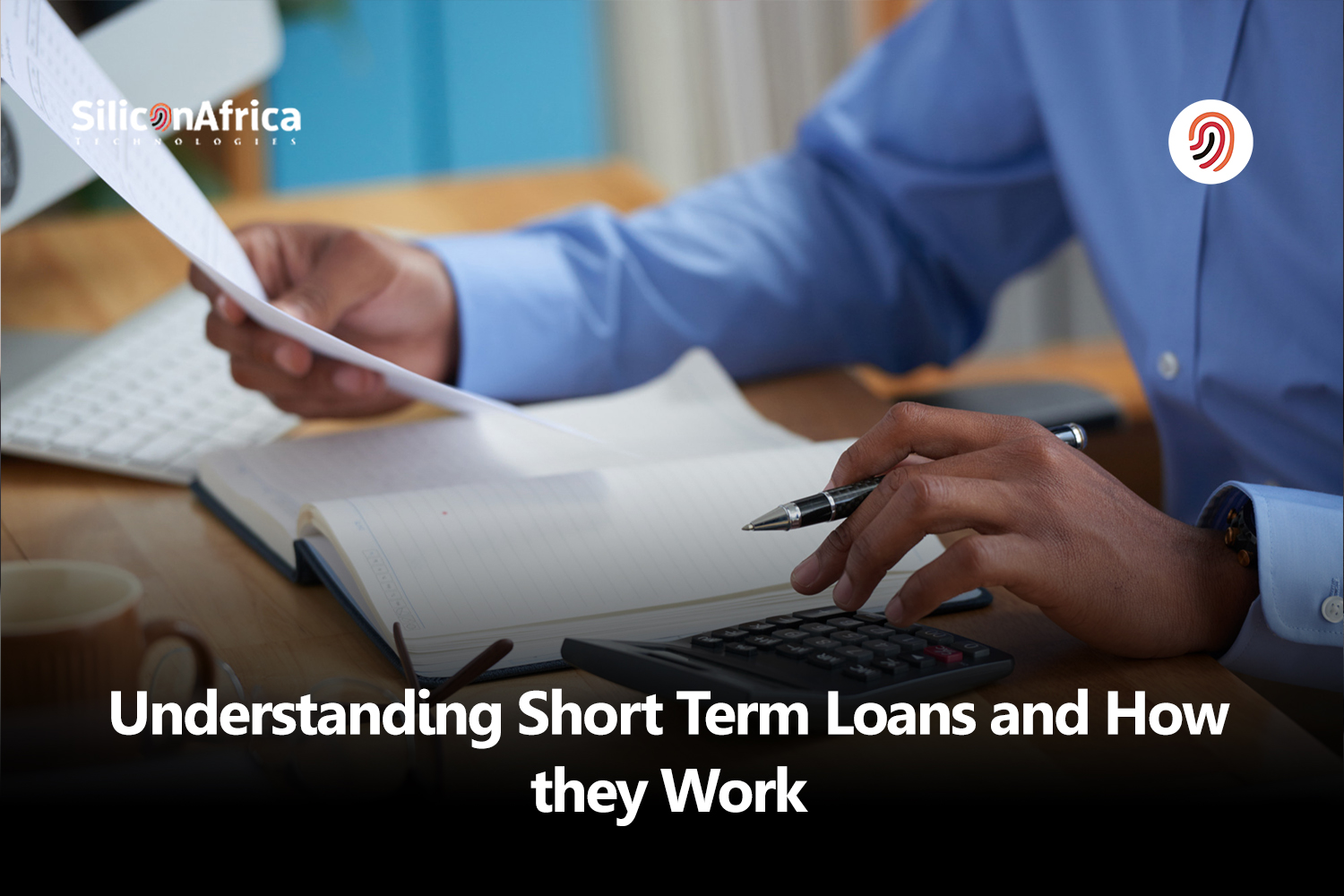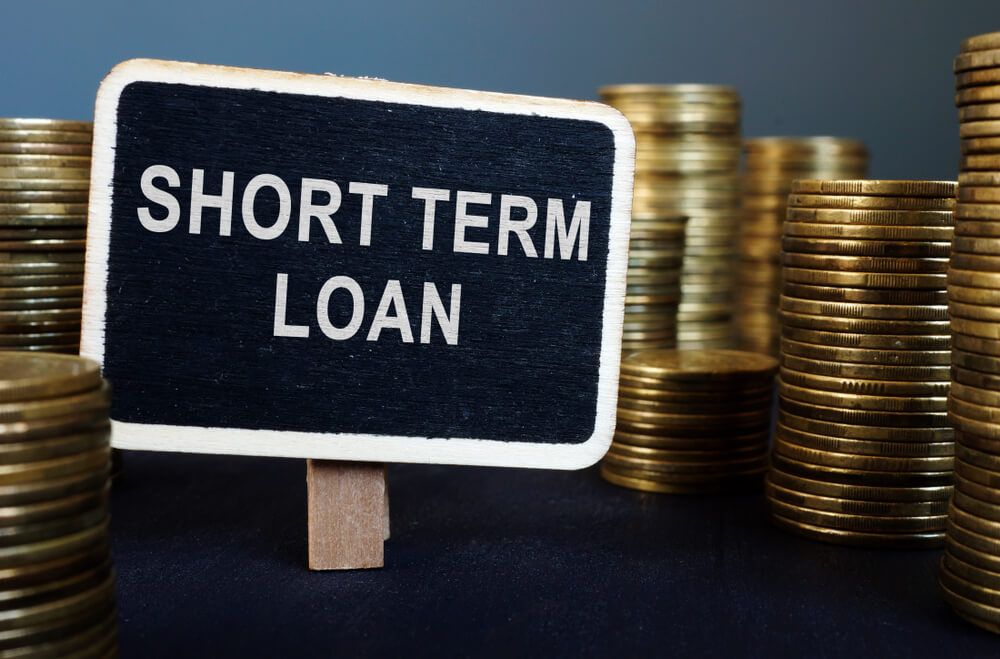Physical Address
60 Ekwema Cres, Layout 460281, Imo
Physical Address
60 Ekwema Cres, Layout 460281, Imo

Short-term loans are a vital financial tool for individuals facing unexpected expenses or temporary cash flow shortages. These loans, often referred to as short-term financing options, provide borrowers with quick access to funds to cover immediate needs.
Whether it’s an unforeseen medical bill, car repair, or utility payment, short-term loans offer a solution to bridge the gap between pay-checks or overcome financial emergencies.
In this post, we’ll be reviewing all you need to know about short term loans, as understanding how they works and their implications is essential for making informed decisions about borrowing and managing personal finances.
A short term loan is money you borrow for a little while to help with a short-term need, like for personal or business reasons.
When you get this type of loan, you agree to pay back the amount you borrowed, plus extra money called interest, by a certain date. Usually, you have to pay it back within a year.
Short term loans are handy, especially for small businesses or new companies that can’t get a loan from a bank yet. These loans are for smaller amounts, like $100 to maybe $100,000.
They’re not just for businesses, though; anyone who suddenly needs some extra money for a short time can use them.
Read also:Boodle Loans: how to Apply
Short-term loans are available from various lenders, including banks, credit unions, online lenders, and payday loan companies.
The application process for these loans is often quick and straightforward, with minimal paperwork required. Borrowers can typically apply online or in person, depending on the lender’s preferences.
Once the application is submitted, the lender will assess the borrower’s creditworthiness and ability to repay the loan.
Unlike traditional loans that may require a high credit score and extensive documentation, short-term loans may be more accessible to individuals with less-than-perfect credit or a limited credit history.
If the application is approved, the borrower will receive the funds promptly, often within a day or two. The loan amount and repayment terms, including the interest rate and repayment schedule, will vary depending on the lender and the borrower’s financial situation.
Read also:*435# Loan: How to Apply for Letshego Loans
Short term loans are designed to be repaid quickly, typically within six months to a year, with the maximum duration rarely exceeding 18 months. Any loan extending beyond this timeframe is classified as a medium or long term loan.
The Characteristics of Short Term Loans are:
Short term loans require prompt repayment, distinguishing them from longer-term options.
These loans have a brief repayment window, usually ranging from a few months to a year, ensuring borrowers settle their debts swiftly.
Some short term loans offer flexibility in repayment, allowing borrowers to repay the loan at their own pace without strict schedules or fixed due dates.
Read also:Top 10 Loan Apps for Urgent Loans in Kenya
Different kinds of short term loans are available, each with its own features:
This option works like a loan, but instead of fixed monthly payments, you repay it through a percentage of your daily credit card sales.
The lender gives you a lump sum, and they collect a portion of your future card sales until the loan, plus fees, is paid off. It’s convenient for businesses with fluctuating income, but it can be costly due to high fees.
Think of this as having a credit card for your business. You’re approved for a certain amount, and you can borrow from it whenever you need.
You make payments based on what you’ve borrowed, and the interest rates are usually lower than those of credit cards. It’s flexible and useful for covering unexpected expenses or managing cash flow gaps.
Lines of credit often have lower Annual Percentage Rates(APR) compared to business credit cards, which can be beneficial for borrowing money.
These loans are designed for emergencies when you need cash quickly. You borrow a small amount, usually for a short period, and repay it in full, along with fees and interest, when you receive your next pay-check.
They’re easy to get but come with high interest rates and strict repayment terms, so they should be used sparingly and responsibly.
These loans are convenient because you can apply for them online and receive the funds quickly. They’re repaid over time with fixed monthly payments, making them more manageable than payday loans.
However, they may still have high interest rates and fees, so it’s essential to compare options and understand the terms before borrowing.
If your business has outstanding invoices from customers, you can use them as collateral to secure a loan. The lender advances you a percentage of the invoice amount, minus a fee, and collects the full payment from your customer.
Once the invoice is paid, the lender deducts their fee and returns the remainder to you. It’s a way to access cash tied up in unpaid invoices to cover immediate expenses or invest in growth opportunities.
Read also:Update on LAPO Loans: How to Apply, Eligibility Requirements and Loan Packages
Short term loans offer several advantages for borrowers, including:
With short term loans, you pay interest for a shorter period, usually around a year. This means you end up paying less in total interest compared to long term loans, where interest accumulates over a longer period.
Since short term loans have shorter repayment periods, lenders perceive them as less risky. This means the approval process is quicker, allowing borrowers to access funds faster. This can be particularly helpful for urgent financial needs.
Short term loans are often a lifeline for small businesses or individuals with less-than-perfect credit scores. The eligibility criteria are generally less strict, partly because these loans are typically for smaller amounts compared to long term loans.
Read also:Starlink is Set to Restrict Roaming in Unlicensed Areas
The big problem with short term loans is that they only give you a little bit of money. Since you have to pay them back quickly, they’re usually for small amounts, so you don’t have to worry about big monthly payments.
Aside this, Short term loans can be really helpful for businesses and people. If a business needs money fast, these loans can fix the problem. And for individuals, they’re good for getting money in an emergency.
Read also:Sterling Bank USSD Code for Transfer and Loans

Before applying for a short-term loan, it’s essential to consider the following factors:
Short-term loans often come with higher interest rates and fees compared to traditional loans.
If you borrow just a small amount, like a few thousand dollars (most lenders won’t give you more than $10,000 or $15,000), you might end up paying back a lot more than you borrowed. Think about it like this: if you borrow $100, you might have to pay back $400 or even more in total.
Evaluate the repayment terms, including the loan duration and monthly payments, to ensure they align with your financial situation.
Lenders want their money back fast, usually within a year. Because of this, you’ll have to pay more each month compared to other loans.
Sometimes, like with payday loans, you might have to pay back the money in just a month or two weeks, which can really strain your finances.
It’s crucial to have a good plan to pay back the loan on time because if you don’t, you’ll end up paying even more. If you can’t pay back the main amount within the given time, you’ll have to deal with hefty late fees.
While short-term loans may be more accessible to individuals with poor credit, defaulting on a loan can have a detrimental impact on your credit score. Consider whether you can afford the loan and make timely payments to avoid damaging your credit.
Short-term loans can create a dangerous pattern. They don’t really fix the main issues that made you need the loan in the first place. Instead, they often make things worse because of their high interest rates and extra charges.
When you take out a short-term loan, you have to pay back the money plus the interest and fees. This leaves you with even less money for the next month, making it more probable that you’ll need another loan or have to extend the first one.
But each time you do that, you end up paying more fees, trapping you in a never-ending cycle that’s hard to break.
Read also:Important News to all Students Sitting for JAMB from April 19 to 29, 2024
Here are some options instead of short-term loans that might work for you:
You could ask people you know for money, but make sure both sides agree on how and when you’ll pay it back to avoid problems.
If you own your home and have a big emergency, you might be able to use the value of your home to get a loan. This can take a few weeks to arrange.
Some companies let you buy things now and pay for them later, often without interest for a few weeks. It can be a cheaper option than short-term loans, but make sure you understand the terms.
If you can pay for your emergency with a credit card, it might be cheaper than getting a short-term loan.
You can apply for a personal loan instead of a short-term one. The interest rates and terms depend on your credit history, but they’re usually better than short-term loans. Look for lenders that don’t charge extra if you pay off your loan early.
This is like having a credit card without the plastic. You can borrow money when you need it and pay it back later with interest.
Some employers might give you an advance on your salary, meaning you get paid early but then have less money in your future pay-checks. Not all employers offer this, and there might be rules about how much you can get and when you can get it.
Short-term loans offer immediate access to funds for a brief period, unlike traditional loans, which have longer repayment terms.
Qualification criteria vary by lender, but some accept applicants with less-than-perfect credit or limited credit history.
Funds can be deposited within a day or two of approval, with online lenders often offering faster processing times.
Repayment periods range from a few weeks to a few months, with options for lump sum or installment payments.
Interest rates and fees vary by lender and loan type, so review the terms carefully, including the APR, to understand total costs.
Timely repayment can positively impact your credit score, but defaulting can harm it, so borrow responsibly.
Yes, alternatives include borrowing from family, negotiating with creditors, seeking community assistance, or exploring low-interest personal loans.
Consider interest rates, fees, repayment terms, impact on credit score, and alternative options before borrowing. Comparing offers from multiple lenders can help find the most affordable option.
Short-term loans can provide a lifeline during times of financial need, offering quick access to funds for unexpected expenses.
However, it’s essential to approach these loans with caution and fully understand the terms and conditions before borrowing.
By carefully evaluating your options and considering the factors outlined in this article, you can make informed decisions to manage your finances effectively.
Remember, while short-term loans may offer immediate relief, responsible borrowing and financial planning are key to long-term financial stability.
If you found this piece useful, kindly drop a nice comment. Also visit and follow us on X @SiliconAfriTech for access to other useful contents